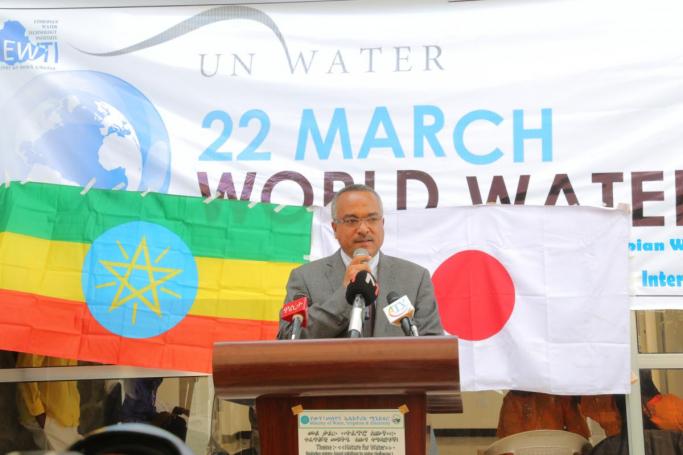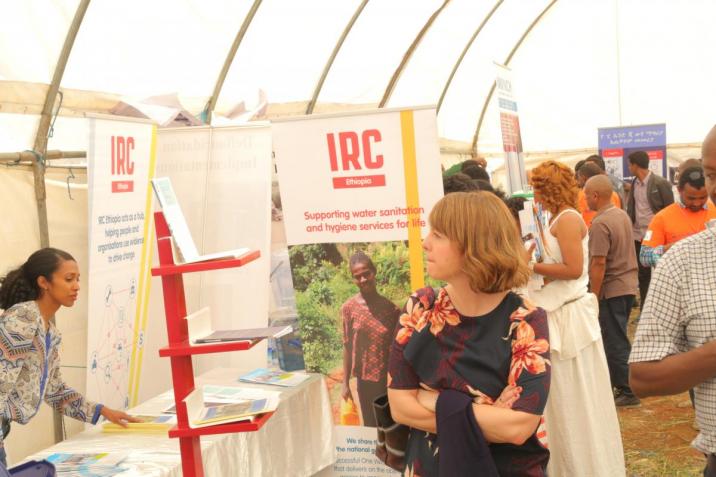As part of the celebration of World Water Day on 22 March 2018, new facilities were opened at the Ethiopian Water Technology Institute in Addis Ababa. His Excellency Ato. Zenebe Garedew, Director General of Ethiopian Water Technology Institute (EWTI) explained his vision for the Institute to be a centre of excellence in capacity building and technology transfer in the water sector across East Africa.

Published on: 29/03/2018
EWTI is focused on technical training, research, and technology transfer; primarily targeting mid-level technical professionals and training over 1000 graduates a year. There is also a plan to develop a specialized laboratory focused on water pollution risks. With support from Morocco, a new training centre for water management and irrigation is also under construction. Another development partner strongly supporting the institute is the Japan International cooperation Agency (JICA).
The developments at EWTI impressed Lemessa Mekonta from IRC WASH "there are changes like the strategy of working to train staff at Technical and Vocational Education and Training Centres (TVETCs) and the inclusion of low-cost technologies. However, training is mainly focused on government staff, established companies and the supply of technical skills. Without more business-orientated training and attention to the demand side there might be a risk that graduates will struggle to find jobs".
A new demonstration site under the Smart Centre initiative was opened for rural water supply and sanitation technologies showcasing potential solutions to increase access to water and improve latrines. The site includes technologies for simple communal water schemes such as handpumps, and Self-supply where households invest in improving their own facilities. Rope pumps, solar pumps and EMAS pumps can all be seen and tested, as well as sanitation solutions like the Sato-pan.
IRC Ethiopia shared its work with visitors at a stand and made available its recent publications. We look forward to collaborating more with EWTI in addressing one of the biggest challenges the WASH sector faces: capacity.
